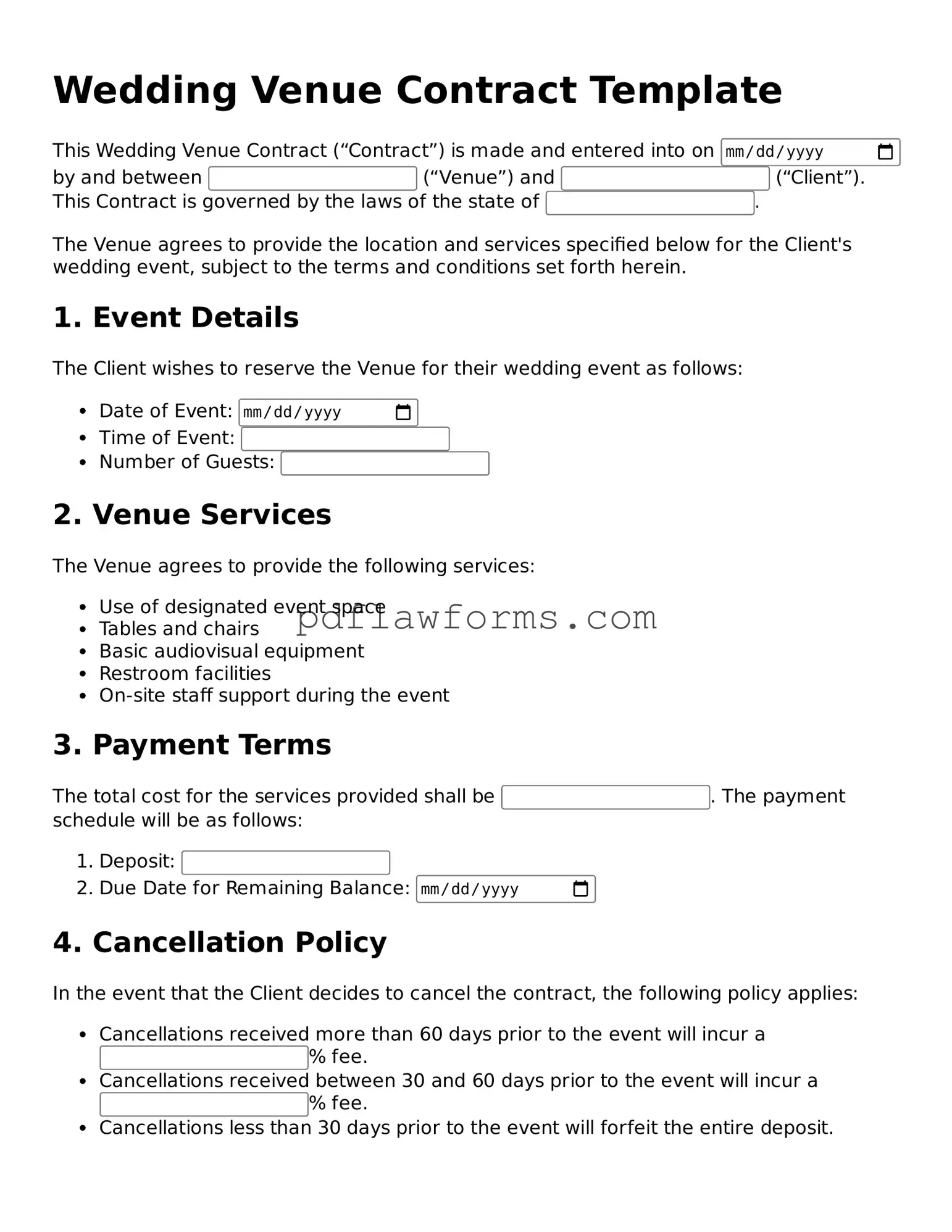Official Wedding Venue Contract Form
The Wedding Venue Contract is a legally binding document that outlines the terms and conditions between a couple and a venue for their wedding celebration. This contract serves to protect the interests of both parties, ensuring clarity on services, costs, and responsibilities. Understanding this form is essential for a smooth planning process.
To get started, please fill out the form by clicking the button below.
Make My Document Online

Official Wedding Venue Contract Form
Make My Document Online
You’re halfway through — finish the form
Edit and complete Wedding Venue Contract online, then download your file.
Make My Document Online
or
⇩ Wedding Venue Contract PDF
